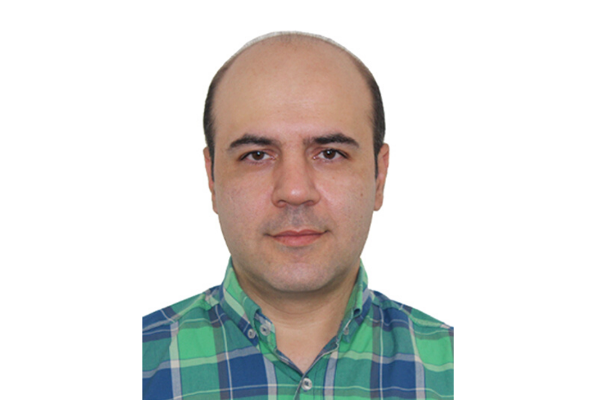
The Marie Skłodowska-Curie Actions (MSCA) European Fellowships provide an opportunity for researchers to work at a research organisation in Europe, with a view to acquiring new skills or working in new sectors. European Fellowships are open to researchers moving within Europe, as well as those coming in from other parts of the world facilitating the advanced transfer of knowledge across-borders.
This international fellowship offers a unique Career Restart option for experienced researchers re-starting their research career at a European host organisation after having spent a period outside research.
We are excited to announce that Dr Hassan Hamidi, Lecturer in Analytical Chemistry from the Islamic Azad University of Zanjan, has been awarded a European Fellowship and is to be hosted at Tyndall National Institute. Dr Hamidi has a PhD in analytical chemistry, specialising in electrochemical sensors and biosensors.

Lecturer in Analytical Chemistry from the Islamic Azad University of Zanjan
The two-year Fellowship will commence in October 2021 at Tyndall where Dr Hamidi will work under the supervision of Dr Daniela Iacopino, Senior Researcher and Integrated Nanomaterials (INMs) team lead at Tyndall. Dr Iacopino specialises in nanoscale materials with engineered optoelectronic properties for sensing applications and the investigation of green materials and technologies for green electronics.
Dr Hamidi’s SusBioLIG project has a sustainability mission at its core and seeks to address the key environmental issue surrounding the disposable nature of wearable sensors. Wearable sensors have the potential to revolutionise traditional health and wellbeing diagnostics by enabling personal healthcare monitoring any place and anytime. However, the increasing demand, prevalence and inherent disposable nature of wearable sensors poses serious environmental concerns both in terms of high energy production requirements and end-of-life disposal. These concerns require the urgent development of “green” materials and processes to ensure the future sustainability of the wearable sensor sector.
In addressing this global environmental issue, the SusBioLIG project aims to identify novel bioplastic compositions which are suitable for direct laser writing fabrication techniques for the application of wearable electrochemical biosensors. Dr Hamidi will use a simple one-step, scalable approach for producing and patterning porous graphene films with three-dimensional networks from biodegradable chitosan using laser writing techniques (bio-LIG).
Dr. Hamidi’s Supervisor, Dr Iacopino said:
“The Marie Curie Individual Fellowships constitute a great way to attract top young researchers into Ireland who have the potential to become world class leaders in their area of expertise as well as to foster new international collaborations.”
The project will begin with an investigation of the bio-LIG process to find the chemico-physical mechanism enabling LIG formation on chitosan. Dr Hamidi will investigate the effect of laser irradiation parameters and the percentages of individual components in order to fabricate LIG electrode materials of high porosity and low electrical resistance, ideal for electrochemical applications. The resulting Bio-LIG electrodes will be characterized by state of the art facilities in Tyndall, including scanning electron microscopy, cyclic voltammetry and electrochemical impedance spectroscopy. Then, simultaneous detection of targeted biomarkers in artificial sweat samples will be performed which will demonstrate “green” sweat wearable sensing.
To achieve the above, Dr Hamidi will implement experimental and theoretical approaches with the support of Prof. Michael Nolan, Principal Scientist in Nanomaterials Modelling at Tyndall to help understand the process of laser writing on biopolymers and therefore enable the identification of a wider family of graphitisable formulations. Once identified, the major output of the SusBioLIG project will be the fabrication of sensor devices on bioplastic substrates. Due to the biodegradable/compostable nature of all the sensor components, such devices will be used as sweat sensors and then disposed without harm to the environment.
If you have the ambition to be a leader in your field, working to solve world societal challenges in one of Europe’s leading institutes in Information and Communications Technology (ICT), R&D and deep-tech innovation, a Marie Skłodowska-Curie Fellowship at Tyndall may be for you. To find out more, contact Dr. Louise Burgoyne (Micro & Nano Systems) or Dr. Martin O'Connell (Photonics).
